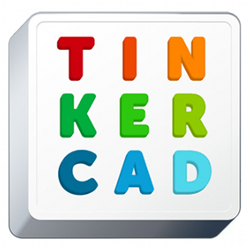A cool tool can be any book, gadget, software, video, map, hardware, material, or website that is tried and true. All reviews on this site are written by readers who have actually used the tool and others like it. Items can be either old or new as long as they are wonderful. We post things we like and ignore the rest. Suggestions for tools much better than what is recommended here are always wanted.
Tell us what you love.Categories
- Announcements
- Aural
- Autonomous Motion
- Backpacking
- Big Systems
- Clothing
- Communications
- Community
- Computers
- Consumptivity
- Craft
- Culture
- Dead Tools
- Deals
- Design
- Destinations
- Dwelling
- Edibles
- Every Day Carry
- Family
- Gardens
- Gareth's Tips
- General Purpose Tools
- Health
- Homestead
- Inner Space
- Just 1 Question
- Kitchen
- Learning
- Life on Earth
- Livelihood
- Living on the Road
- Maker Tools
- Maker Update
- Materials
- Media Tools
- Multiple Product Reviews
- No Stream
- Nomadico
- Paper World
- Photography
- Play
- Podcast
- Prove Us Wrong
- Readers' Gifts
- Recomendo
- Related Stuff
- Science Method
- Somatics
- Source Wanted
- Tips
- Tool Chest
- Tools for Possibilities
- Uncategorized
- Vehicles
- Videos
- Visual Media
- What's in My Bag
- Workplace
- Workshop

Public access ebooks
How to Find Free and Cheap Ebooks
Where I live, decent public libraries with connections to the software service Overdrive allow surprisingly easy checkout of “library books” wirelessly to your Kindle. The Overdrive system provides libraries with both audiobook downloads and eBooks. I find, like most, that reading or listening to these books on a computer is untenable, but transferring audiobooks to my Sansa Clip player is as easy as pie.
For the (increasingly) large selection of books with Kindle versions, it’s very easy to get free content to show up via Amazon’s Whispernet. Nothing fiddly about it, no cables either. And for the earlier cool tool of “User Manual First“, Kindles are a pretty good place to keep these PDF files. Either transfer via cable (easy) or use your Kindle’s email address which allow your docs to show up via Whispernet.
Finally, if you sign up for Amazon Prime service, you not only get free shipping on your purchases, you also get access to the “Kindle Owner’s Library” – more books without fees. And if your Kindle is a Fire (or you don’t mind watching on a PC), you also get access to lots of streaming video (my wife is re-enjoying Ally McBeal (and I’m enjoying not being exposed to it, too)).
Anyway, go to your library’s website and look for Overdrive services. Another convergence of several cool tools that merge to form a new level of cool tool. — Wayne Ruffner
Retailers like Amazon and Barnes and Noble have the lock on bestsellers and the like, but a flourishing underground market for free and cheap ebooks has become a boon for readers.
The best established source for free ebooks is Project Gutenberg whose archives contain over 36,000 ebooks that represent nearly every out-of copyright classic piece of literature along with a vast archive of obscure but pleasurable reads. The quality of digitization is excellent, and the site’s vibrant community ensures that any errors are quickly fixed. They also offer the ebooks in a variety of formats (ePub, mobi, html), including some as downloadable audiobooks.
With more and more libraries getting into the game of lending ebooks, the software company Overdrive (that Wayne mentioned) has been leading the way. Libraries contract out their ebook libraries to OverDrive who make them available for a limited loan period (via a proprietary DRM from Adobe) through their software that is available on most operating systems including iOS and Android. Once you have the application, simply add your local or state library system (some are better stocked than others) and Overdrive allows you to browse the ebooks that they have available to check out. Everything’s automated so there are no late fees, and often times you can get best sellers without waiting (or, if they’re “checked out” you can reserve them and when they become available they are automatically downloaded).
ManyBooks.net is the friendliest index of free ebooks of the bunch. It will search Project Gutenberg’s archives, as well as troll through numerous other archives. They also provide recommendations and reviews (which is incredibly useful given the sheer number of available titles).
Outside of strictly free sources, InkMesh is the best search engine I have found for identifying if an author or a book is available in ebook form, whether it is free, where I can download it, and in what format. They have also collated a comprehensive list of free ebooks available for a variety of platforms.
Two more sources for the ebook crazy are the blogs Pixel of Ink and Books on the Knob which highlight attractive deals for the Kindle.
Finally, to manage this inundation of ebooks I heartily recommend the previously reviewed Calibre. If you have other recommended sources for eBooks and the like, feel free to leave a note in the comments and I’ll make sure to update this page. — Oliver Hulland

Digital magazines
Longer than a newspaper item but shorter than a book, a magazine article is the ideal length for my attention span. I’d rather spend an hour with a great magazine article rather than read a book any day. Ditto for hopscotching through shallow blogs and newspaper bits. But there are fewer print publications running long form journalism. Ironically, a new website, called Long Form, points to the best long form articles appearing anywhere in print, and also collects the great magazine articles from the past. Long Form fits perfectly into a small ecosystem whereby you can read these great pieces of writing on a Kindle, iPad, or phone. I’ve found the easy-reading portable screens of these tablet devices fit a 1 to 2-hour window perfectly.
Here is how this system works. The Long Form website lists great magazine articles just published as well as past hits from the archives. You mark the articles you want to read, which are then downloaded to your tablet via Instapaper, another website, which has an iPad app and Kindle connection. You can then read the articles, without ads, at your leisure on your gadget. The whole migration is seamless and unconscious.
I mentioned this was an ecosystem. You can also select pieces to read on your tablet or phone directly at Instapaper, which does not specialize in long forms but also includes short pieces. Instapaper’s sister site, The Feature, like Long Form, makes reader selections of the best magazine articles. On both sites you hit a button “Read Later” to move it to your reading device. In fact you can mark any web page to be “read later” from an Instapaper button on your menu bar and it will move it to your tablet, phone, or even RSS feed. And you can send to Instapaper (and therefore to your reading device) any item from your Twitter stream or social apps like Delicious or Digg, Reddit, etc. to be read later on your Kindle or iPad (or computer screen).
However, I prefer to read long form factuals, and so I keep returning to Long Form to find the gems. I particularly enjoy classic great magazine pieces that I missed over the years. In fact, I realized that I’ve never seen a list of the best magazine articles ever, but see no reason not to make one now. If you have a nomination for one of the top 100 magazine articles of all time, please send it to me (with a link if possible). I’ll share what I accumulate on this page here. — KK

Short digital installments of long books
DailyLit sends you bite-sized chunks of public domain books (including many classics) daily, on weekdays, or three times a week via email or RSS — for free. Each serving takes less than five minutes to read, and if you want, they’ll send you the next installment right away if you click a link. So far, I’ve read “Bartleby, the Scrivner” — 18 segments over the course of 3 weeks or so — and I just signed up for Crime and Punishment – more than 240 segments! Yes, it may take 9 months to read, but I’m certainly more likely to finish it this way. I read them in my email reader (Thunderbird) and don’t print them out. The whole idea is to read short segments for a few minutes in your spare time. I’d imagine it would work well on a PDA or Blackberry if you have one (I don’t); if you have a long cab ride or something you can get the next segment immediately. — Jonathan Fromme

Tech knowledge subscription service
I’ve had a subscription to Safari for over five years now. For a monthly fee (pricing is dependent on the plan you choose), Safari grants you instant access to thousands of tech and business-related digital books. New titles become available surprisingly regularly and quickly (occasionally Safari will get the digital version of a title before Amazon does). In short, the service gives me access to a wealth of knowledge in a much less expensive and more convenient manner than any alternative. —Loren Bast
Once a week we’ll send out a page from Cool Tools: A Catalog of Possibilities. The tools might be outdated or obsolete, and the links to them may or may not work. We present these vintage recommendations as is because the possibilities they inspire are new. Sign up here to get Tools for Possibilities a week early in your inbox.


















